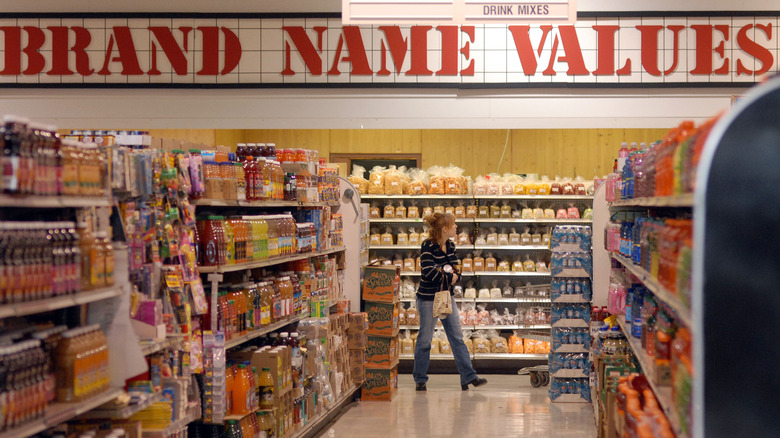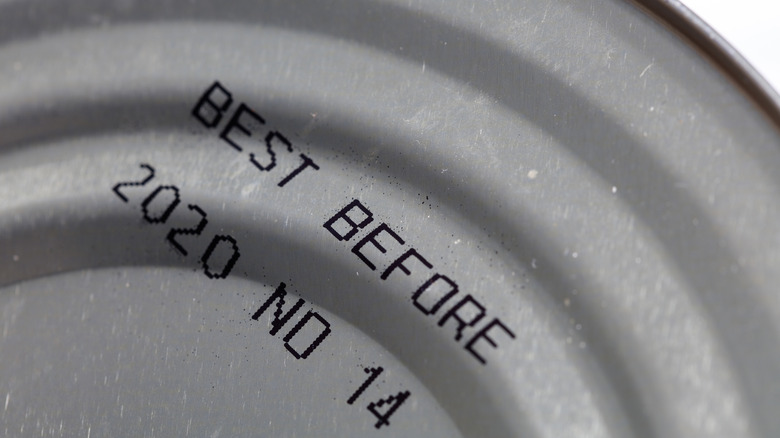'Salvaged' Groceries Are An Underrated Answer To Food Inflation
Food-security advocates have long championed the idea of reducing food waste and repurposing items otherwise destined for disposal. If the food is still useable, why would it be tossed? That's where the term "unsellables" comes into play. It's also part of a growing solution to the current food-inflation woes experienced across the globe.
Based on the Consumer Price Index published by the U.S. Bureau of Labor Statistics for July 2022, groceries prices in America have risen 13.1% in the past year alone. So it's not surprising that overall consumer demand accordingly plummeted, with the July Fetch Price Index indicating a 6% decrease in customer spending year over year. When it comes to food, a necessity by any measure, people have few options.
Fetch, the top-rated consumer rewards app, has at least one answer for that: salvage stores, many of which carry food items (via New York Times). With at least an 8% rise in so-called salvage shopping overall during the first two quarters of 2022, many consumers are discovering the inflation-beating advantages of picking up groceries at considerably lower prices.
With the U.S Department of Agriculture (USDA) estimating food waste at 30 to 40% of the U.S. food supply and 31% food loss at consumer and retail levels, grocery salvage stores are an underrated solution on many levels.
Grocery shopping at salvage stores
A look at salvage store operations by The Atlantic gives a glimpse into the inner workings of grocery-store excess. Supermarkets have a variety of options, including donating to food banks or cooking nearly expired food for in-store deli sales. Salvage stores provide another viable way of dealing with food that's unsellable due to packaging flaws, expiration dates, dented cans, or less-than-optimal produce perception. Much of the food first goes to wholesalers or clearing houses known as "reclamation centers." That's where individual or chain-operated salvage stores pick up most of their food items, sometimes in bulk boxes stuffed with items undisclosed prior to the purchase. Consumers report extraordinary discounts at grocer salvage stores bearing names like Stretch-a-Buck, the Dented Can, and Uplifting Deals, with the New York Times relating stories of even organic and gluten-free foods selling for less than half the price of as mainstream stores like Whole Foods Market.
Noting that most sell-by and best-before dates on packaged foods are recommendations, not legal requirements, SalvageFood.org cautions against purchasing specific expired items. These include baby formula, which is one of the few food items in which sell-by dates receive federal regulation. They also note that the Food and Drug Administration (FDA) advises against purchasing damaged canned goods with leakage, swelling, holes, or severe denting.
The SalvageFood website provides a salvage grocery store directory for each U.S. state as well as research on topics such as food dating, food waste, and tips for buying edibles at salvage outlets.

